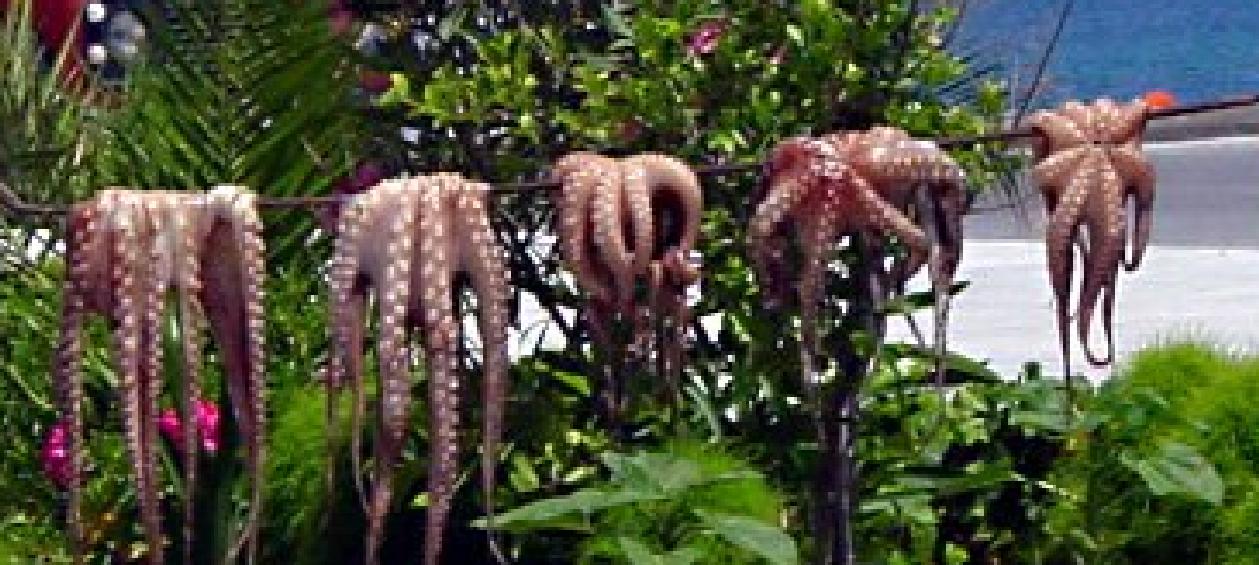April 24, 2004
Octopussies
 A word whose plural is particularly problematic is octopus.
Here are the results of a Google search:
A word whose plural is particularly problematic is octopus.
Here are the results of a Google search:
| octopi | 34,300 |
| octopuses | 33,800 |
| octopods | 2,310 |
| octopodes | 921 |
| octopii | 601 |
The leading plural form is octopi, which is wrong. The net is not always an authoritative source of information. octopi is neither the English plural nor the classical plural. octopi is what you get if you take octopus to be a second declension Latin noun. But it isn't, so octopi is wrong. The last form, octopii, is doubly wrong. It is apparently based on the same false assumption that it is second declension, but it uses a non-existant plural suffix ii, whose origin I have previously discussed.
The second most popular plural, octopuses, is one of the forms considered correct by dictionaries. It is not a classical form. It is the regular English plural. The correct classical plural is the next-to-least popular, octopodes. The reason is that octopus isn't really a Latin word; it's a Greek word that was borrowed into Latin. In Greek the nominative singular was ὀκτώπους [oktopus] and the plural was ὀκτώποδες [oktopodes]. Like many Greek loans into Latin, it is declined more-or-less as in Greek, as a third declension noun.
What about octopods? This is a scientific term derived by making an English plural from octopod, which is the bare stem of the Greek word, not its singular. A guess is that octopod is a backformation from the neuter plural octopoda, the name of the order containing octopuses.
There is one more form that we haven't discussed: octopussies, for which Google yields 411 hits. Not all of them are references to octopuses, but many are. This is evidently based on a folk etymology of octopus as containing puss "cat", from which the hypocoristic pussy is derived. The same folk etymology is the basis for the pun in the nom de guerre of the title character of the James Bond film Octopussy.
Posted by Bill Poser at April 24, 2004 09:40 PM